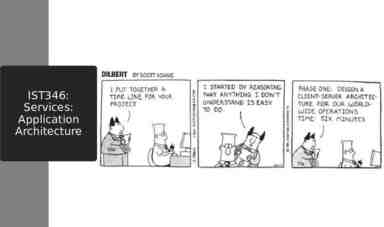Ophthalmology Update 2017 Mr. S. Sivakumar FRCS, MS, DO,
35 Slides2.75 MB

Ophthalmology Update 2017 Mr. S. Sivakumar FRCS, MS, DO, PG Certificate in Medical Education, MBA Associate Specialist & SAS Lead in Ophthalmology SAS Clinical Tutor Heart of England NHS Foundation Trust Honorary Senior Lecturer School of Life & Health Sciences Aston University, Birmingham

Service Cataract Macular degeneration Diabetic retinopathy Glaucoma

Cataract One stop cataract clinic listing and biometry Day case surgery Nurse Post op – Listing for other eye Doctor clinic

Glaucoma Visual Fields & clinic Diagnosis & Management Follow up – Doctor/glaucoma nurse – GMU

Macular Diseases Retinopathies which can affect the macular are Age-related macular degeneration (wet and dry type) 1 Diabetic macular oedema2 Macular hole3 Epiretinal membrane4 Central serous chorioretinopathy5 High myopia macular degeneration6 Idiopathic CNV7 Idiopathic polypoidal choroidal vasculopathy 8 Of these retinopathies, AMD is the leading cause of certified visual loss in England and Wales.9 Two subgroups of AMD are classically distinguished, atrophic or geographic atrophy (dry AMD) and Exudative or neovascular (Wet AMD) 1. 2. 3. Penfold P,, Prog Retin Eye Res. 2001 May;20(3):385-414. RNIB 2012 Diabetes Cavallerano AA et al, J Am Optom Assoc. 1994 Dec; 65(12):845-54 1. 2. Pournaras CJ et al, Semin Ophthalmol. 2000 Jun;15(2):100-7. Schatz h et al Ophthalmology. 1992 Jan;99(1):63-7.

Exaggeration of the 'normal' ageing process characterized by discrete yellow spots at the macula (Drusen) and pigmentary changes of the RPE

Pathology Drusen – a hallmark of AMD Undigested cellular debris from degeneration of RPE cells as part of normal ageing process accumulates as ‘drusen’1,2 – Yellow/white material that builds up between the RPE and Bruch’s membrane 1,2 Hard drusen: Small, hard, solid deposits, more closely associated with dry AMD2,3 Soft drusen: Larger soft deposits, more closely associated with wet AMD2,3 Drusen may remain unchanged for years without causing sight loss 2 – 95% of elderly patients have a small number of drusen1 1. Nowak JZ. Pharmacol Rep 2006;58(3):353–363 2. Jager RD et al. N Engl J Med 2008;358(24):2606–2617; 3. Fine SL, N Engl J Med. 2000 Feb 17;342(7):483-92.

AMD Prevalence / Incidence Age-related macular degeneration (AMD) is the leading cause of certified visual loss in England and Wales.1 The RNIB estimates that 500,000 people in the UK suffer from the condition, 40% of whom are over the age of 75.2 214,000 have sufficient visual impairment for registration as partially sighted or blind 3 Prevalence rises with age4 Early AMD: 8% of people aged 43 to 54 years vs. 30% of those 75 years 5 Advanced AMD: 0.1% of people aged 43 to 54 years vs. 7.1% of those 75 years 5 The recent improvements in therapy have had a positive impact on visual impairment and blindness due to AMD 6,7 1. 2. 3. Bunce C et al. Eye (Lond) 2010;24(11):1692-9. RNIB AMD Campaign http://www.rnib.org.uk/getinvolved/campaign/success/amdcampaign/Pages/ amd campaign.aspx accessed March 2013 Owen CG et al. Br J Ophthalmol 2003, 87:312-317. 1. 2. 3. 4. Klein R et al Ophthalmol 1992, 99:933-943. Klein R, Ophthalmology. 1992 Jun;99(6):933-43. Minassian DC et al. Br J Ophthalmol. 2011 Oct;95(10):1433-6. Campbel JP et al. Arch Ophthalmol. 2012 Jun;130(6):794-5.

Dry Dry vs Wet AMD Dry AMD Also known as non-exudative, geographic1 Pathophysiology: drusen related; end stage geographic atrophy1 More common form (80%)2 Slow insidious disease progression (20% of severe AMD related vision loss)1 Treatments: Limited - lifestyle advice or ocular vitamins Wet AMD Also known as neovascular, exudative1 Pathophysiology: VEGF mediated choroidal neovascularisation; end stage disciform scar Less common form (20%)2 Rapid, severe vision loss (80% of severe AMD related vision loss)1 Treatments: Available 1. Mitchell J, Bradley C. http://www.hqlo.com/content/pdf/1477-7525-497.pdf. Accessed March 2013; 2. Penfold PL,. Prog Retin Eye Res. 2001 May;20(3):385-414. 3. Nowak JZ. Pharmacol Rep 2006; 58 (3):353 – 363;

Symptoms of Dry AMD Decreased visual acuity Early AMD vision loss is generally mild and often asymptomatic Symptoms may include1 Distorted vision Loss of visual acuity Loss of contrast sensitivity Abnormal dark adaptation Progression of dry AMD1 Mild occasional metamorphopsia Gradual vision loss over months/years Central/ paracentral scotomas 1. Jager RD et al. N Engl J Med 2008;358(24):2606– 2617. Decreased contrast sensitivity

Wet AMD 10-15% of cases, but is responsible for around 80% of severe vision loss in AMD1 26,000 to 40,000 new cases a year2,3 Prevalence is increasing with the ageing population4 The WHO has estimated that in 2004 7% of global blindness due to eye diseases was due to AMD5 1. 2. 3. 4. 5. Jager RD et al. N Engl J Med 2008; 358 (24):2606 – 2617 NICE Technology Appraisal Guidance TA155. http://www.nice.org.uk/nicemedia/pdf/TA155guidance.pdf. Accessed April 2013 Owen CG, et al. Br J Ophthalmol doi:10.1136/bjophthalmol-2011-301109 Congdon N et al. Arch Ophthalmol 2004; 122 :477 – 485 Vision 2020 WHO public health initiative http://www.who.int/blindness/Vision2020 report.pdf Accessed April 2013

Wet AMD Can progress rapidly and cause significant visual loss in as little as 3 months1 Untreated, a high proportion of eyes affected will become functionally blind within 2 years2–4 Wet AMD in one eye is associated with an increased probability of development in the other eye5 Early detection and treatment may prevent unnecessary vision loss7 Wet AMD is a treatable disease2,7 1. 2. 3. 4. TAP Report No. 2. Arch Ophthalmol 2001;119:198–2007 Rosenfeld PJ et al. N Engl J Med 2006;355:1419–1431 Gragoudas ES et al. N Engl J Med 2004;351(27):2805–2816 Bressler NM et al. Am J Ophthalmol 1982;93(2):157–163 1. 2. 3. Pieramici DJ, Bressler SB. Curr Opinion Ophthalmol 1998;9:38–46 MPS Group. Arch Ophthalmol 1997;115:741–747 Haddad WM et al. Br J Ophthalmol 2002;86:663–669.

Choroidal Neovascularisation and Vision Loss Scar tissue (disciform scar) 1. Nowak JZ. Pharmacol Rep 2006;58(3):353–363.

Decreased visual acuity Metamorphopsia Decreased contrast sensitivity Central scotoma

Wet AMD and Quality of Life1-3 Charles Bonnet Syndrome More likely to fall 60% report anxiety or depression QoL 33% of patients report that they are unable or struggle to dress or wash themselves, compared with 24% of people who have suffered stroke or brain injury 60% reduction in QOL, similar to prostate cancer or catastrophic stroke Patients with advanced AMD: 4x more likely to need assistance with activities of daily living 1. 2. 3. Lotery A et al. Br J Ophthalmol 2007;91:1303–1307 Soubrane G et al. Arch Ophthalmol 2007;125:1249–1254; Mitchell J, Bradley C. http://www.hqlo.com/content/pdf/1477-7525-4-97.pdf. Accessed April 2013

Anti-VEGF Pathway ARMD Pathway – Guidelines Optician Referral Discharge GP/ Optician Non-medical retina clinics & VMC Rapid Access Macular Clinic (RAM) Nurse does logMAR vision and dilates pupils with Trop1%/PE 2.5%. both eyes. Data input in Medisoft. OCT scan of both eyes Doctor consultation - FFA ANTI-VEGF INJECTIONSRanibizumab/ Aflibercept MACULAR AND MEDICAL RETINA CLINIC Referral scanning ORAYA

Lucentis Pathway Loading dose 3 monthly injections V M C Pathway Treat/Monitor & Extend/shorten VIRTUAL CLINIC Clinician reviews OCT scans and vision within 3 working days. Medisoft data input

Eylea Pathway 1st Year Loading dose 3 monthly injections 2 monthly injections (Nos: 4 to 7) & OCT Scan 2nd Year TREAT/MONITOR SHORTEN/ EXTEND DURATION VIRTUAL CLINIC Clinician reviews OCT scans and vision within 3 working days. Medisoft data input

Diagnosis History & Visual Acuity Fundus Examination OCT – Ocular Coherence Tomography FFA – Fundus Fluorescein Angiogram

Treatment Intravitreal ant-VEGF injections Ranibizumab Lucentis Aflibercept Eylea Stereotactic Radio Therapy – SRT Oraya -- STAR study

Visual Rehabilitation Low Vision Assessment Low Vision Aids – Magnifier, lighting, CCTV Registration (CVI) – Sight Impaired & Blind

Summary ARMD is the most prevalent maculopathy and the leading cause of certified visual loss in England and Wales AMD causes significant burden to the economy and the patient/carer Many pathogenetic risk factors underlie AMD Severity and progression of wet AMD is dependent on the individual patient CNV pathology and vision loss mediated through VEGF stimulated angiogenesis

Diabetic Retinopathy Diabetic Retinopathy Screening Programme Retinopathy – R0 R1 R2 R3 Maculopathy – M0 M1

Maculopathy – M1 Close observation Focal Argon Laser – stop leakage Intravitreal injections – Lucentis, Eylea, Ozurdex & Iluvien

Retinopathy R2 – Close observation R3 – Pan Retinal Photocoagulation – PRP Decrease/destroy the ischaemic stimulus

Retinal Vein Occlusion - RVO CMO – Focal Argon laser – Intravitreal injections Lucentis, Eylea & Ozurdex Rubeosis/Rubeotic Glaucoma – Pan Retinal Laser Photocoagulation - PRP

Lids & Oculoplasty Lid lesion biopsy Lumps & bumps – Needs authorisation Blepharoplasty – affecting visual field (Proof)

Discharge Policy New patient – 1 DNA Follow up – 2 DNA

Future? 4 hospitals under one trust Sharing of good practice Improve efficiency, cost & patient experience Complex procedures – I site

Thank you for listening











